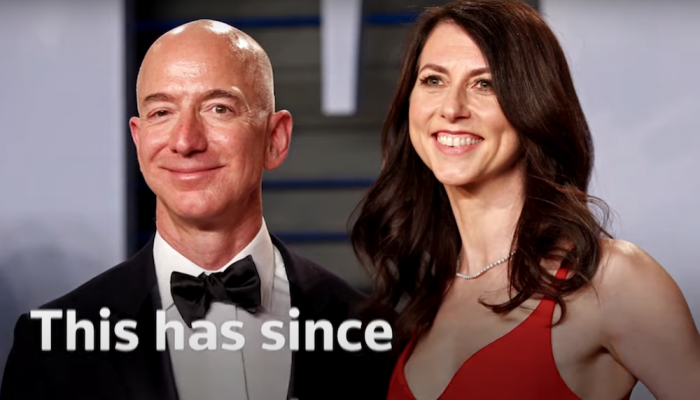MacKenzie Scott, formerly Bezos, announced this week that following her commitment to The Giving Pledge, she has donated 1.7 billion dollars of unrestricted funds to charitable organizations that are focused on helping marginalized communities within the United States.
Scott stated that she had “a conviction that people who have experience with inequities are the ones best equipped to design solutions.”
According to a report by Frontline, only 0.23 percent of philanthropic funds are currently awarded to Native-led organizations, despite the fact that Native Americans make up two percent of the United States population.
However, of the recipients of Mackenzie’s donation this far, three percent benefitted Native American communities, which has raised the bar for the standards of traditional philanthropy.
There are approximately 5.2 million Native Americans (either alone or in combination with other races) in the United States. Their socioeconomic outcomes and access to education are often determined by pervasive inequality and discrimination.
This donation comes at a critical time for these communities, who, like other minority groups and those in lower income communities, have been disproportionately affected by COVID-19. Many of their businesses have halted and services are in peril. Higher education support can be used as a tool to empower Native students to elevate not only their own lives but the lives of their communities.
Aside from raising the bar in terms of representation, Mackenzie’s choice to donate unrestricted funds is also key. Typically large donations such as this are restricted funds—meaning that the money can only be spent on the cause. However, without the funding to be able to pay for the running of an organization—which includes paying the wages of staff, and the practices that keep the business alive, it can be difficult for organizations to be able to stay afloat.
“This generous gift truly exemplifies the humanity, compassion, and unity that still exists in the world today. At a time when we are all impacted by the racial awakening and health concerns impacting our country, this gift reminds us that we are more connected than ever,” says Angelique Albert, Executive Director of the American Indian Graduate Center, who received 20 million dollars of unrestricted funds from Mackenzie Scott. “One of the greatest gifts one can give is access to education, and this gift will impact thousands of Native scholars and transform the landscape of tribal higher education. The impact this will have, not only on Native students but on Indian Country, as a whole is so profound, we will feel the impacts for generations to come.”
Moving funds to demographics that have endured systemic oppression can provide relief as well as the opportunity to serve unmet needs, and build paths forward for community empowerment and sustainable development.
Prior to this donation, the American Indian Graduate Center has been running for 50 years and has already empowered 16,000 students from over 500 tribes in all 50 states by providing scholarships of between 250 and 30,000 dollars annually, as well as support services including providing academic advisors to connect students with campus resources.
Students enrolled in the American Indian Graduate Center programs graduate at significantly higher rates than the national average. Scott’s unrestricted funding honors the expertise of the American Indian Graduate Center, allowing those working closest to the issue to manage distribution in the most effective way for Native student recipients.
The historic relationship between Native Americans and educational systems in the United States is traumatic and oppressive. The first interactions many Native societies had with Western education was through the forced placement of Native children into residential boarding schools that operated under the directive “Kill the Indian, Save the Man.” The last of the schools in this violent system was closed as recently as 1973.
Still, Albert points out that the resilience of Native culture has allowed Native people to survive that trauma and understand the importance of education in today’s world, knowing that it is a vital key to individual success and tools for community empowerment. “We’re not just providing scholarships, we’re breaking cycles of oppression with the power of education. I’m proud to lead an organization that is built to create the next generation of Native American leaders. By empowering our students with everything they need to succeed in higher-education, we hope to provide better opportunities for generations to come,” says Albert.
In 1969, there were only 38 Native lawyers, 15 Native doctoral students, and 30 Native medical doctors. As of 2018, the American Indian Graduate Center has contributed to over 1,300 law degrees, 1,700 postgraduate degrees, and 450 medical degrees for Native students.
With this generous donation, the organization is committed to realizing its mission and vision of fulfilling the unmet need of every Native American student. With funding like that given by MacKenzie Scott, the American Indian Graduate Center can continue its established work providing scholarships to students, innovate new ways to dismantle persistent educational barriers, and transform the relationship between Native Americans and the American educational system.






Read 0 comments and reply